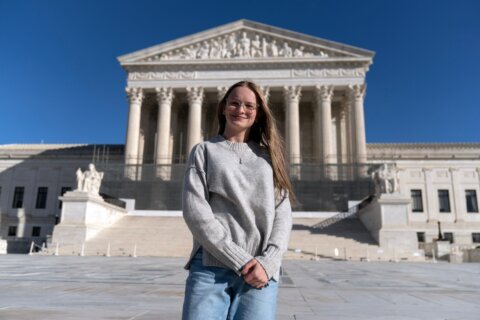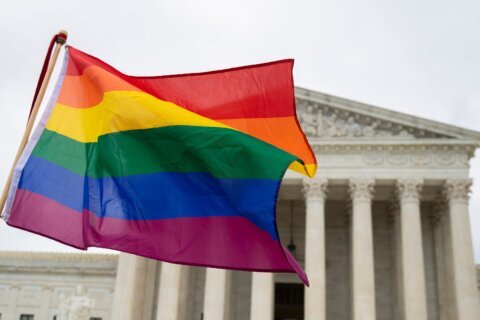WASHINGTON — The Supreme Court’s decision to uphold the president’s ban on travel from several mostly Muslim countries disappointed area Muslim advocacy groups.
The court announced its 5-4 decision, with a dissent written by Justice Sonia Sotomayor, late Tuesday morning.
Chief Justice John Roberts wrote the majority decision, saying that presidents have the power to regulate immigration and rejecting claims that the ban was anti-Muslim.
In her dissent, Sotomayor wrote: “History will not look kindly on the court’s misguided decision today, nor should it.”
The Council on American-Islamic Relations rejected the court’s decision at a news conference shortly after it was announced.
“Today’s Supreme Court decision is extremely disappointing,” said Nihad Awad, CAIR’s executive director. “Disappointing to Muslims and all Americans who believe in equal protection and equality.”
Awad criticized the court’s decision, arguing that it gives President Trump’s administration “a free hand to re-inject discrimination against a particular faith back into our immigration system, which was rejected more than 50 years ago.”
ABC News legal analyst Royal Oakes said Sotomayor’s dissent was “stinging,” explaining that the justice’s minority argument made the case that Trump’s action was based on a religious bias. Oakes said the Trump administration’s third attempt at a Muslim travel ban was neutral enough that it could “carry the day with this court.”
The ban has been in place since December, as the court took its time to consider the arguments and paused lower courts from blocking its enforcement.
Roberts, in the majority opinion, wrote that the court was not expressing an opinion on the “soundness of the policy.”
At the Dar Al-Hijrah Islamic Center in Falls Church, Virginia, director of public and government affairs Saif Rahman said “it seems to me the Supreme Court, unfortunately, has not seen the discriminatory practice that is evident to all and took a very legalistic approach to an issue that is much more so than that.”
The mosque is one of the oldest in Northern Virginia, and serves over 15,000 congregants. Rahman said he already is aware that Muslims who had previously been looking to move to the United States to start businesses, for example, will perceive the U.S. as a discriminatory nation and look to go elsewhere.
“The fear we have is that this brings back some of the discriminatory immigration practices that were practiced in our country in the past,” Rahman said.
Speakers at the CAIR news conference said the court’s decision reminded them of another executive order: when President Franklin D. Roosevelt established internment camps for people of Japanese descent living in the United States during World War II.
Gadier Abbas, CAIR’s attorney, said the decision Tuesday will be remembered by the Muslim-American community just as Japanese-American communities remember those days during World War II.
“It will sit alongside these decisions as a shameful expression of inadequacy, of a failure to adhere to our constitution in times of distress. But there is a path forward,” Abbas said. “No one is relying on just the courts to take away the Muslim ban.”
Awad said Americans recently have seen the power of public sentiment to force change. Just last week, the Trump administration changed its policy of separating undocumented parents and children who were trying to illegally cross into the U.S., after condemnation from the public and both Republican and Democratic elected officials.
“My message to our people is that the struggle continues, we have to engage, we still have hope in our society, we have hope in our political system, and yes, we have hope in our court system, but we have more hope in our will to create change and provide equal protection for people irrespective of their faith tradition,” Awad said.
Rahman said he believes America is made up of a rich tapestry of ideals, and will overcome the current decision to uphold the ban.
“There are many Supreme Court decisions that we later regretted,” Rahman said. “I think this will be one of a long line of Supreme Court decisions we will one day look back upon and say: ‘Wow, what were we thinking as a nation? Where did we think we were heading?'”







